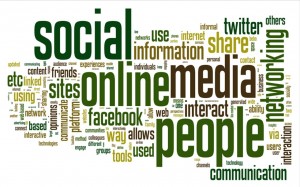 Written communication has become more intensive and voluminous because everybody is now communicating in writing, especially on email. All companies have an Internet presence, and that creates a whole new market of writing and reading. There is a new need constantly to produce the content for the websites driven by novelty, so writing is done in great quantities. Its quality is not always great, although some of the most excellent writing these days may be found online, as blogging that offers analytical commentary about politics, culture, history, or any other topic of interest. The writers of these pieces are not always paid to do their writing. Some of the best thinkers-writers maintain their own blogs for the sake of expressing their opinions.
Written communication has become more intensive and voluminous because everybody is now communicating in writing, especially on email. All companies have an Internet presence, and that creates a whole new market of writing and reading. There is a new need constantly to produce the content for the websites driven by novelty, so writing is done in great quantities. Its quality is not always great, although some of the most excellent writing these days may be found online, as blogging that offers analytical commentary about politics, culture, history, or any other topic of interest. The writers of these pieces are not always paid to do their writing. Some of the best thinkers-writers maintain their own blogs for the sake of expressing their opinions.
Another engine of change is the need to transfer much of the material that had only been available in print into a web-accessible and searchable form. Much of this work is done by people who read the digital scans and correct the errors in computer vision, as well as prepare the layout of the texts for viewing on the new devices that are becoming available.
 Emergence of smartphones and similarly-sized mobile devices has created an entire information industry which takes advantage of the power of these gadgets to synthesize enormous amounts of location-specific information. Displaying a great deal of information on a small screen surface is a great communication and design challenge, and companies hire writers and designers who revise the content served to users to ensure it is both informative and appealing to look at. Since it’s hard to say what uses we are yet to find for our mobile devices, it may be interesting to follow how the work of writers and artists becomes further intertwined.
Emergence of smartphones and similarly-sized mobile devices has created an entire information industry which takes advantage of the power of these gadgets to synthesize enormous amounts of location-specific information. Displaying a great deal of information on a small screen surface is a great communication and design challenge, and companies hire writers and designers who revise the content served to users to ensure it is both informative and appealing to look at. Since it’s hard to say what uses we are yet to find for our mobile devices, it may be interesting to follow how the work of writers and artists becomes further intertwined.
These jobs require not only good writing skills and a keen eye for detail, but also solid familiarity with the technology that does the work of transferring text between media, and with the new standards of readability and beauty that the smartphones and tablets have brought along.
Freelance Internet Writer
Alumnus Eddie Cambro (2010) makes his living as a freelance writer.
I am a freelance writer.
What is the broader field of industry in which this work exists?
Journalism, arguably.
What, in general, do you do as part of this job?
I get paid to do what I’ve always wanted to get paid to do: write. Depending on what is asked of me or what I pitch to an editor, I write reviews for books, television and film, or more analytical op-eds that look at pop culture through a scholarly lens.
What are the pros and cons of this kind of job?
Pros: I more or less make my own hours and can work from anywhere at any time. At airports, on vacation, at 4AM, on the way to meet friends. Since freelance writing is so fluid, it can be a great supplement to income and can be done at lunch during your day job or when things are slow at the office.
Cons: It’s feast or famine. Freelance writing is unsteady. Sometimes you may not have an idea, sometimes the editors aren’t interested in them, etc. It is also tough to find a place that will pay you when you’re starting out. Many sites and companies will offer exposure and an opportunity to build your brand rather than money. However, the more experience you have—the more articles, the more sites, the more likely it will be that you will find some sort of compensation. I used to work Sales in high-end retail, and Francis, the man who trained me said, “You don’t sell, you don’t eat.” Same goes for freelancers.
What skills did you learn as an English major that you use in this job?
Professors can be unrelenting in their grading. In my papers, I loved going off on tangents and waxing poetic. No matter what I would get my teeth kicked in for it, and I’m thankful for that. As an English major, I learned to streamline and to focus. I learned to back up the opinions I give. I learned structure, and that I must adapt my writing style to what was asked of me, not the other way around.
How have you learned to do this job?
Writing is like anything else. You learn by doing, by practicing. The writer I am now is better than the one I was last year, better than the one I was at sixteen. In a business sense, I learned that you have to knock on every door you can find until someone opens it. Being meek won’t get you anywhere.
How did you get this job?
It started as an internship. My then-boss liked my work and hired me to freelance now and again. Eventually, I wrote an article that didn’t really make sense for the site, and I shopped it elsewhere.
For current students interested in this line of work, do you have any recommendations on what they can do now to start directing their career path?
Get a day job first. Building your credentials as a freelance writer will take time; finding places that will pay you will take time. Get your name out there: start a blog. If you see a story on the news or read or watch something that you want to write a review or monograph about, do it—quickly but correctly. You wait too long and it’ll be old hat. And don’t be sloppy either.
Know who your audience is. Let’s say you’re writing an op-ed on politics. If it’s a left-wing bent, you’ll send it to sites like Salon or Mother Jones. If it’s right-wing you’ll send it to the Federalist or Breitbart. Gaming, you go to IGN or Polygon. Comics, you go to Nerdist, CBR, or Newsarama.
Get a writing internship. Create a posting advertising your services on job boards. It will take time and work but eventually you’ll start getting responses and offers.



